Success as an author comes with challenges around managing money, setting boundaries, and living sustainably without burning out. Sacha Black/Ruby Roe talks about her lessons learned after five years as a full-time author entrepreneur.
In the intro, Content marketing for authors [BookBub]; Vineyard research [Books and Travel]; AI-generated voice cloning for select US Audible narrators [The Verge]; How AI is changing audiobooks and how it echoes changes in the music industry [Music Tectonics]; Blood Vintage; Comment écrire un roman — Joanna Penn;
Today’s show is sponsored by Draft2Digital, self-publishing with support, where you can get free formatting, free distribution to multiple stores, and a host of other benefits. Just go to www.draft2digital.com to get started.
This show is also supported by my Patrons. Join my Community at Patreon.com/thecreativepenn
Sacha Black writes spicy sapphic fantasy romance as Ruby Roe, as well as books for authors. She’s the host of The Rebel Author Podcast and an international professional speaker. Sacha recently did a solo episode on her lessons learned after 5 years full-time, and we discuss aspects of that in the interview.
You can listen above or on your favorite podcast app or read the notes and links below. Here are the highlights and the full transcript is below.
Show Notes
- Why pivot to a new genre — mindset and money shifts
- Finding freedom from writing under a pen name
- Publishing and business model changes required with rapid sales growth
- Learning to outsource as your author business grows
- Repurposing content across multiple social media platforms
- Your books are not your pension. Your pension is your pension — so invest! (Check out my list of money books here.)
- Avoiding burnout — spending time on hobbies and social activities
You can find Sacha at SachaBlack.co.uk or at RubyRoe.co.uk.
Transcript of Interview with Sacha Black
Joanna: Sacha Black writes spicy sapphic fantasy romance as Ruby Roe, as well as books for authors. She’s the host of The Rebel Author Podcast and an international professional speaker. So welcome back to the show, Sacha.
Sacha: Thank you for having me.
Joanna: I’m excited to talk to you today. Now, you were last on this show—I mean, you have your own show—but you were on the show in August 2022, when you had just celebrated three years full time. We talked about your lessons learned.
Now you’re at five years and things have changed a lot. Now we are going to break this down into sections, but let’s start with the genre stuff, the type of books you now write. Like what you were doing then and what you’re doing now, and—
Why change your genre and the type of books you write?
Sacha: So when I left my day job in 2019, I had found some success sharing all the lessons that I’d learned as a writer and compiling those and putting them into craft books.
I was doing okay. I was averaging sort of 40,000 to 50,000 pounds a year across the business, but I’d also reached a plateau. I wasn’t really growing and wasn’t really earning anymore. With the type of business it was, as a nonfiction author, you have so many different streams that you can actually have too many different streams.
So I was getting really, really tired, and also kind of feeling like I was making a job for myself, rather than having left my day job to like, “live the dream.” Especially because I’d left my day job to write fiction, but the fiction that I had written up to that point was young adult fantasy.
I think that’s like most indie authors that I meet do that, or think they’re going to do that at some point, and then we all find the thing we’re supposed to be writing.
So then I’d kind of gotten tired and felt like I was in this job instead of running a business. Then I stumbled upon a sapphic, so lesbian young adult book, and for the first time, I read and I had emotions. I was like, oh, my goodness me, is this what everybody else feels when they’re reading?
Then, of course, I dived into binging everything that I could get my hands on, but it was all young adult.
I stumbled across a spicy adult lesbian book, and everything changed. I knew that that was what I wanted to do.
So that’s what I’m writing now, adult fantasy romance, but for lesbians. Or sapphic people, I should say, because that’s more inclusive.
Joanna: Or people who like reading those books. I think you don’t have to identify that way to enjoy reading those books.
Sacha: No, absolutely. There are straight characters and all kinds of different characters in the books. I guess that’s just the genre catchphrase is, you know, sapphic fantasy romance.
Joanna: You said there, so many indies do this. They start writing in one area, and then eventually they kind of find what they really want.
Why do you think it takes time to find what you really want to write?
Sacha: I think for me, it was dealing with expectations. I’m a bit of a people pleaser. Thank you therapy for knocking that out of me. So I was sort of doing what I thought I should be doing. Doing something polite, reputable, and that’s also what I’d read.
I mean, as a queer person, queer fiction, up until recently, was really hard to find. There wasn’t a lot of it. There certainly wasn’t any of it when I was at school or in my formative years. So it just took me that amount of time to actually find it.
In terms of why other people do it? I’m not really sure. I think we all have our different journeys. Sometimes it’s other people’s expectations. “Oh, well, if you’re going to write a book, you have to be traditionally published,” or, “Oh, you have to write proper fiction,” or, “Oh, write literary,” or whatever.
The more creative we are, the more we sink into that love of art, that love of the word, we free ourselves from those expectations and constraints.
That’s really what art is, I suppose, and I do feel like writing is art. So, yes, I think it’s a shedding of expectations. Especially as indies, we’re naughty.
Joanna: In terms of those expectations there—I mean, obviously you use the word spicy, so we’ll keep that word—and for me, it has been writing darker things, I guess. Maybe it’s that those are the things that our parents or people who know us in real life or whatever, are like, “Oh, I didn’t know you were like that.”
Sacha: 100%. Neither of my parents have read my books, thank god.
Joanna: Well, they told you they haven’t!
Sacha: Yes, they told me they haven’t. My mum keeps threatening to read it. I’m like, “Don’t though. It’s really okay, you don’t have to.”
I think it’s very difficult because you can tell things about an author from their words. People come up to me and go, “Oh, I’m really sorry about ‘blah, blah, blah,’” and I’m like, wait, what, how did you sort of work that out?
I think any type of writing does force us to be vulnerable in a way because we cannot help the subconscious things that come out on the page. So people do make judgments, and so there probably is a bit of fear about what people will think. I’ve just reached the “I don’t care anymore” point of life.
Joanna: You wait until you’re in your 50s! I’m not even there yet, but I keep thinking about it.
Okay, so let’s talk about your name. So Sacha Black’s not your real name, and now you’ve got Ruby Roe.
Why did you decide to go with (another) pen name, Ruby Roe?
Sacha: Well, originally, when I decided to write this spicy lesbian stuff, because it was so new, and because I did have a podcast, and I had been a speaker in certain conferences and things, I had enough of a reputation that I didn’t really want anybody to know what I was doing.
I wanted to do it in secret so that there were no expectations. It’s all this people pleasing, you know, doing what I think other people want me to do rather than doing what I want to do. Thank you, therapy. So I had to do it in secret, which meant I needed a different name.
It was, funnily enough, my stepdad who suggested I write spicy books. I was like, well, I’ll write spicy if I can use your name. So his surname is actually Roe, and I love a bit of alliteration, so that’s where Ruby Roe came from.
So it was basically I needed to do it in secret with nobody watching over me, so that I could be really free to write whatever I wanted, and it to be the most true story to me. Not necessarily my life, but just free of expectation, free of pressure, free of anybody looking at me.
Actually, the funny thing is, is that when I then finished it, it was done, and so it felt like a cutoff point. So actually, I was then like, okay, I don’t care what anybody thinks now because I’ve done it. It’s too late, I can’t take it back.
So it was at that point, when I sent it off to the editor, that I was like, you know what, I don’t mind talking about this anymore. Then I felt much freer because I’d done the brave thing of writing it, and then talking about it didn’t feel so scary anymore.
Joanna: So I think it’s been about 18 months, hasn’t it?
Sacha: Yes.
Joanna: So about 18 months since you started. So how has it gone? Tell us about how the Ruby books have gone compared to the Sacha Black books, I guess.
How have you driven your incredible success as Ruby Roe?
Sacha: Okay, so for anybody who is numbers sensitive, like fair warning, I’m actually going to give you numbers. I think it’s really important that we’re honest.
So, okay, I have to pull the timeline back a little bit more. So in the summer of 2022 I released my last nonfiction book, or my most recent nonfiction book. It was at that point, just coming in towards the end of 2022, that I decided I was going to not just write sapphic fiction, but throw everything at writing sapphic fiction.
This meant more or less giving up sort of that 80/20 rule. You know, I could only spend 20% of my time on nonfiction, and at that point I was still doing freelance, so really it was even less than 20%.
In January 2023 I made 926 pounds on Amazon. I’m a wide author, but we’re just going to look at Amazon for now, for the sake of these. 1.4% of which was fiction. So like 15 quid or 13 quid or something. Everything else was nonfiction.
Last month, July 2024, which was 17 months later, I made 20,000 pounds on Amazon, of which 1.2% was nonfiction. So 250 quid.
Joanna: Thank you. Everyone’s like, “Woo hoo! That’s amazing. I want to write spicy sapphic romance!”
Sacha: So, I mean, it was like 17-18 months for a complete 180 business shift. I still am shocked by those numbers. So that’s how it’s gone, pretty darn well.
Joanna: We should just say that’s not been one month. You’ve been pretty consistently doing a lot better.
Sacha: I mean, last month was a launch month, but I’m averaging between 10,000 and 15,000 on Amazon, and I am a wide author. I do have one series in KU, but it’s my biggest store, followed by Apple, I think is next after that.
Joanna: And, of course, the Kickstarter. So tell us about all those other things because you have changed your publishing model as well.
Sacha: Totally.
Joanna: And your marketing.
Give us the publishing and marketing side.
Sacha: So Kickstarters, I’ve done one Kickstarter. I can’t really say I “do them.” I did one Kickstarter in February, which was the worst timing ever, but in very Sacha fashion, I was like, “Yes, I’m going to do it. Let’s just do it!” Then I did it, and it nearly killed me, but I did it, and it was amazing.
So I’m doing my second one next month, as we record this. So September 2024 is the second one. That does bring in huge chunks of money. Obviously, there are huge costs associated with it, but it’s also a different platform, a different group of readers, definitely. Obviously, you do drive some readers there, but it’s other people who are very, very willing to pay more per like—what’s the phrase—per order.
Joanna: Average Order Value.
Sacha: Thank you. Average order value is just incredible. I can’t even quantify how much higher, a lot higher.
Joanna: It’s 10x for me. It’s a 10x average order value than fiction on Amazon.
Sacha: Yes, exactly. So that is amazing. I also have Shopify. I’m driving all of this through a range of different means, which I’ll talk about in a second, and wanting to expand how I’m doing that.
So at the moment, a lot of my traffic comes from TikTok. Not all of it anymore because there have been an awful lot of algorithmic shifts, and so we’re doing a lot of replication across Instagram.
Social media typically doesn’t really sell books — until it does sell books for you.
It’s just one of these weird situations. TikTok, particularly, is quite good at driving traffic, and ultimately traffic means visibility, which means more sales. The more visibility you have, the more sales you’ll end up getting.
I am trying very, very hard to look at other ways and means because nothing lasts forever. That is definitely something I have learned from this industry.
So I’m doing low level Amazon ads, just about to start looking at Facebook ads for Shopify. Just so that I am not reliant on any one source of the traffic, for one, or income. I don’t want anybody owning me.
Joanna: What about TikTok ads?
Because you’ve done it organically so far, haven’t you?
Sacha: I have. It’s so difficult, isn’t it, because all of these social media platforms eventually die out because they put advertising on there, and then your organic reach reduces, and then people either pay to play or they don’t.
Then people don’t always enjoy what’s on their feed, and so people leave the platform. We are seeing a bit of that at the moment.
Will I do TikTok ads? Maybe. I definitely think that it’s still in the forming stage. They’re still very, very new.
TikTok Shop is something that I’m looking at because I’m seeing a lot of authors talking about the fact that their videos and posts that are linked to their TikTok Shop accounts are getting vastly more visibility than their non TikTok Shop accounts.
Joanna: So just on that, just explain why. Because—
TikTok is essentially now a publisher, aren’t they?
Sacha: So they’ve just set up a distribution warehouse in Birmingham as well, Birmingham UK, that is. So they are doing sort of the fulfillment side. We print and then send all our books there. So I don’t know whether they’re necessarily a publisher.
Joanna: In the US, they do some printing, I think.
Sacha: I don’t know about that. I mean, I only know what they’re doing in the UK because the TikTok Shop in America is completely separate. They don’t even have the same team inside TikTok. I actually had a conversation this week about that, looking at whether or not to do it.
You have to choose the right income streams, the right traffic streams, the right advertising streams for you.
You can very easily do all of it and then get exhausted. Ask me how I know!
Joanna: Yes, it was funny, earlier you said you had too many different streams of income and it’s tiring. Now you’ve just done it again, but in a different way.
Sacha: Exactly. Well, I mean, that’s why I am trying to. So with the Sacha stuff, that’s changed. I used to do all of the things. Now if I do speaking, it’s only certain things, and also webinars because they’re higher value than, I don’t know, things that are lower value.
I’m basically trying to be sensible with my time so I don’t burn out. She says laughing because that’s exactly what she’s always on the brink of.
Joanna: Well, I think it’s interesting though, because —
You are surfing a moment where your organic content has hit. You’ve also hit a hungry market, which is authentic to you —
— because of your lived experience. So you’re making the most of that, but as you said, things go up and down, and nothing lasts forever.
You’re writing pretty fast as well, aren’t you?
Sacha: I mean, proportionately, I suppose, but not compared to the old model of rapid releasing a book a month. This year I think I’ll have written three or four books, and I’ll only have released three, but then I will have done two Kickstarters and seven conferences. So, I mean, that’s the interesting thing.
One of the things that I’m trying to do next year is reduce the amount of stuff, the other things, so that I have more gaps, like more still time and more time at home, so that I can produce more words. That’s my happy place. When I’m drafting, that is my most joyful bits of work time.
Joanna: I think also, I mean, there is the time for the strategy as well, the kind of step back and have a look. It’s great being in the maelstrom of everything going gangbusters, but then at some points kind of stepping back and thinking of the bigger picture.
Sometimes I find that if I’m traveling or at a conference when someone else is speaking, that can give you some different perspective, can’t it? Or even like—I wanted to talk to you on this because obviously I learn a lot from you.
I found your five year thing really, really interesting. It’s a far cry, actually, from your three years.
Sacha: I do not even recognize the person I was two years ago. Like, I actually am not even sure I recognize who I was last year. I am so different.
It’s very, very hard to quantify the mindset and psychological changes that happen when you go through such a significant change like this.
Joanna: Well, let’s talk about some of those things. Actually, I wanted to point out I have a timeline. So everybody can go to thecreativepenn.com/timeline, and I’ve been sharing these lessons learned every year. In fact, by the time this goes out, I might have shared my latest one, whatever that’ll be, 14 or 13 years, whatever it is.
Sacha: They’re like my faves.
Joanna: What’s interesting, I went back and had a look, and in my year four, I went from five to six figures. Then in my year five, I doubled that to multi six figures. It’s so weird that in a completely different way you’ve done the same thing, which I just thought was really odd.
I wonder, because, of course, mine wasn’t TikTok, I wasn’t doing that genre. So when people say, “Oh, well, that’s okay for Sacha. She can do that because she’s writing sex, basically,” or, “That’s okay for her because ‘blah, blah, blah,’” or, “That’s okay for me because whatever.”
Like, people always seem to say these things, and yet, both of us have done such different things.
On year five, I actually wonder if there is something just about the maturity of a business that shifts it at that point.
You needed those earlier years to get to that point.
Sacha: Yes, I wonder the same thing. I certainly had people telling me not to write lesbian fiction because it doesn’t sell, and I’m just laughing so hard now. I think we all face those people, like the naysayers that are like, “I don’t know if you should do that. There’s no market there.”
Maybe it’s easy for me to say because, blah, blah, blah, but also, it’s not because I worked myself so hard I nearly burnt out.
So, yes, I am literally on an identical pathway. So last tax year, 102,000 pounds. I’ve already done that this tax year, and we’re only four months in. So I’m definitely on track to double, well, probably more than double, this year. That’s bonkers. So that’s going from year five to year six for me, so I’m a year behind you.
In terms the practical stuff, I mean, so many things, Joanna. So many things I have learned. Okay, I need to take a deep breath because this is mortifying in some ways.
So the biggest thing I think that has happened is the amount of—and I don’t want to use this word, but it is true, or it’s how I feel—but like bureaucracy around the money.
There are so many things that we should be doing with money that I possibly wasn’t doing.
You know, very, very strict record keeping. Certainly in the UK, when you go over the VAT threshold, you have to be so militant with your record keeping. That means things like receipts, like reconciling stuff.
You need to be on top of the amount that you’re keeping aside for tax or VAT payments.
Actually, you get to a certain point where even if you can do it, you’re probably not best placed to do it. There are other people who are very qualified, and that’s their job, and they really enjoy doing it.
That’s one of the things that I’ve learned this year, is that I don’t have to do everything.
It really hurts me saying that out loud, but I don’t, and actually, I’m not best placed to do everything because I’m not an expert in everything. I just need to be an expert in one thing.
Then like on the side of that, understanding legal terms, financial terms, there’s so many more words and like clauses and laws that you need to be aware of. Like that alone is different in every country.
If you are a business owner with your own website, selling books from your website, you actually are the responsible person who needs to understand all of those things. I certainly experienced some quite scary moments where I knew more about our industry and the legal implications than accountants.
Thank you, Jo, for educating me on those topics. The accountants didn’t necessarily know the right things because they also are not experts in every single area. So I had to move accountant.
Things like cash flow as well. This was a huge, huge problem for me.
Before I exploded, I was bringing in maybe like 3000 a month, 2000-3000 a month. Then that first kind of viral month I had, I did just under 3000 on Shopify alone.
Now that seems like, oh, great, you’ve made 3000 extra pounds. Well, no, because with Shopify, the way that it works with the printer, they charge you immediately for the sale and the printing of that book, but they also charge you for the shipping of that book.
Then Shopify doesn’t give you that money for, say, I don’t know, three days, five days, something like that.
What it does is cause this really jarring cash flow problem where you don’t want to close shop, because obviously you want to have those sales and encourage them and keep that going, but you can’t afford to pay for the shipping and printing of the books that need to be shipped and printed.
So I had to get a credit card, which I hadn’t done in, donkeys, like, probably five years I hadn’t had a credit card. So that was, like a really big, terrifying step for me.
Obviously, it all got paid off because you know the money’s coming in, but those are the kinds of things that you have to think about when you do spontaneously explode like this.
Joanna: There’s a couple of things there. So the first thing is, I really love that you talk about the—I don’t like the word bureaucracy, basically—but I mean, I guess it is all of the stuff you need to run a business.
This is the big difference between what authors think they are, which is, “I’m an author,” and even if you’re running a business just on Amazon, they do all of that for you, but as soon as you start to run your own store.
Generally, if you are a director of a company, even if you’re the only employee — as both you and I are of our companies — the responsibilities of a director of a company are legally required.
In any country where people are listening, and you can use ChatGPT for this, it’s very useful for all of this legal stuff. It’s like, what are the responsibilities of a director in whatever country? One of those, like you mentioned, is record keeping.
As you said, as well, even if you outsource your accounting to someone, which, again, you should if you’re running a company, you are still responsible for it. So you have to understand enough to look at your accounts.
I mean, I know you’ve got an accounting system now, and you’re doing all the right things, but it’s scary, isn’t it?
It’s scary to suddenly have to be a grown up business person.
As opposed to like, was it just a hobby before?
Sacha: Well, I think I always wanted it to be a business and to be a serious business person, but when you’re just making ends meet, which, more or less, I was just making ends meet. It was fine. We were fine and comfortable and paying all the bills, but there wasn’t an awful lot left at the end of the month. You’re not forced to think about it.
Whereas now, if I’ve turned over 100 grand in four months, I’m going to have a pretty hefty tax bill, which means you have to put money aside. Actually, I still am nervous about money and about the accounting side of it.
So I’ve actually got the accountants to make me custom reports so that I can track through the year approximately how much tax money I should save, how much self-tax, whatever the words are. I know it all clearly, but you know the corporation tax, things like this.
I still feel like I’m a baby in this world and need that level of reassurance. People who are fully trained can do these things for you, you just have to ask. So yes, I do have an accounting system. It’s almost like somebody who knows more than me was really helpful and helped me to do that, and told me to set up a pension and things!
I’m trying to save for tax, I’m trying to put money into a pension, because you also have to understand how you can take money out of the business sensibly without incurring huge, huge bills with the government at the end of a tax year.
It’s a lot to learn.
Almost like when you’re a new author and you’re like, “Okay, I’m going to publish indie,” and then all of a sudden you have all this stuff to learn about marketing, about publishing, and it’s a new language. It really, really is.
You think all of these words that we talk about, and other people, non-writers, when you start talking about your business, they just gloss over. It’s the same here with money. I feel like I’m still learning all of these terms, and I wasn’t stupid beforehand.
Joanna: But it made you feel stupid, didn’t it?
Sacha: Yes, it did. I felt really naive and foolish thinking that I knew everything that I was supposed to know about this area.
Joanna: But how could you? That’s why I wanted to talk to you about this too.
Obviously, we have had a lot of conversations over the last 18 months, and what struck me in talking to you was,
“Oh, my goodness, how many other people out there are not doing the things they need to do in order to be successful in their business?”
The reality is, since 2008, since I’ve been in this industry, I have seen so many people, in fact, like yourself, who have hit some big wave, and they’ve made a ton of money, and then they’ve kind of disappeared. Now, you know, you said nothing lasts forever.
That wave passes on, or the genre shifts, or TikTok shifts, or whatever it is, shifts. Then suddenly you can’t necessarily hire a whole family to be in the business, or you might have bought some massive house or whatever.
I’ve seen too many people disappear because they thought the cash flow would last forever.
Sacha: If you are lucky enough to make excess money, like more money than you actually need to pay your bills, then the clever thing to do would be to make that money make more money for you, which is what I’m trying desperately hard to do now.
It is scary because you have to sometimes lock money away for a really long time for the future. Some of us thought we’d be invincible forever, and 20, except now we’re heading towards 40, and we’re really tired.
Joanna: We might think a pension is a really good idea! Actually, it is good to talk about pension because, again, you’re the same age as one of my sisters, and I’m the eldest.
We’re both the eldest of five, and so we feel responsible for our younger siblings, but it’s impossible to talk to your siblings because they never listen to you. So, of course, you have to find a proxy and lecture them about pensions, which is what I’ve been doing with you.
I think what’s interesting, on a serious note, is a few years back, and I think I was guilty of it too, is there was at one point, there was a sort of trendy thing that people were saying, “Oh, my books will be my pension.”
At the time, and this may have been in the earlier days of when there was more blue water, as Becca Syme would say. Then people just thought, “Oh, well, let’s say I have my 50 books or whatever, then when I’m old, it’ll just pay me enough money to live.”
We’re at a point now, where that is not true now. Given that you’re, let’s say, 30 or 20 years off retirement or whatever, then it’s like, well, what if my books are not my retirement? Who knows what the hell the world is going to be like or whatever.
My books aren’t my pension (superannuation), but my pension can be my pension.
What do you think about that?
Sacha: Yes, I mean, I definitely always thought my books would be my pension. I was definitely of that era in the indie world where I’m like, “Yes, yes, my books are going to be my pension.” Whether it’s naive or not, I feel like now, at 37, that I won’t retire because I don’t want to retire because I’ll get bored.
Also, at 37, I’m definitely not as energetic as I was at 20. So I’m not naive enough to think that I might change my mind about that.
So what we see with books is that we have the nice launch spike where they make a lot of money, and then for a couple of years, they do really well, and they’ll plateau at a certain amount of money per month.
Unless you either make them current and relevant, or you continue to have successful marketing—which I do see that my Girl Games books, the first series that I wrote with Ruby, sells more now than it did when I launched it—but unless you continue to work on that, it won’t.
It might not continue anyway because different trends come up, different mediums of story come up, different tech things come up which will change the face of how we consume entertainment.
Anyway, there are no guarantees, and therefore the only thing that we can do, just like when we talk about either being exclusive or wide with our books, the only thing we really can do is have enough pots of money, investments, assets, that we’re not reliant on any one of those for our old age and our pension years.
Joanna: Yes, and pivoting into new things as they come up. I mean, both of us in our careers so far, we’ve pivoted out of one thing and into another thing. That’s the other reality, even if you think, “Oh, yes, of course, my books can be my pension,” well, I guess they can be if you want to keep doing the marketing.
We’ll use TikTok as an example, because you very kindly, like one weekend when I was like, “Okay, I’m going to do it. I need your help. Get on the phone with me,” and you very kindly got on the phone with me. Then I was like, “Yes, I’m going to do it.” Then it was within 24 hours, I messaged you and said, “No, I’m not going to do it.”
Sacha: I did laugh.
Joanna: I know, but I did try briefly. Obviously, I didn’t try that hard. I already knew that it wasn’t going to be great for me, and then I did, I tried, and it didn’t work.
This is the reality. Like I know that there are people listening who felt the same way about TikTok. There are lots of people who are loving it and lots of people who are not.
That’s going to happen in another five years, in another 10 years, in another 20 years. Like wherever you are in your life, your life changes, and what you want to spend your time on changes.
Do we want to be doing book marketing forever?
Sacha: It’s almost like a privilege problem, right? When we reach a certain amount of income, we have the privilege and the freedom to be able to choose how we spend our time. So, it’s like, well, will I do this forever? I honestly don’t know.
I’m doing it now because it brings me joy, and I feel like that is the biggest lesson of this whole journey.
The minute I stopped doing things for other people and started writing the things that I wanted to write, doing the business things that I found enjoyable, all of a sudden, success came.
I do feel like that is a very common thing that happens in this community. I mean, obviously it doesn’t happen to everybody, but I don’t know.
Joanna: I think so. So just on the mindset, I mean, you’ve touched on it a little bit. One of the things I liked in your lessons learned was this kind of realization, you said, “I work the same level of hard as I did a year ago, but now I earn more. That was a strange thing to try to process.” I guess that is about money mindset, but—
What are some of the mindset shifts for you over the last couple of years?
Sacha: So the big lesson that I learned around actually hitting a really arbitrary financial goal that I’d set years ago—that I just hyper focused on, and was like, no, this is what I need to do—is that nothing actually changes when you hit that goal. Other than I fell into a giant deep depression for two weeks.
I say depression, I mean “small d” depression, I don’t mean clinical depression. I really struggled to get out of bed for two weeks. For two weeks, I was miserable. I’d hit the most successful financial point I’d ever hit, and I was miserable.
It’s because I hadn’t thought further than success, and I think a lot of us don’t do that. A lot of us don’t really think about, okay, what if we actually do hit the success?
We think about it only in terms of fear of judgment and fear of expectation. We don’t actually think about it in terms of the logistical consequences of that.
So I had to take a hot second to make some new goals and get some new long-term plans because you definitely get to a certain point, and more money is just more money. Like, it loses some of that meaning that you were chasing it, or it certainly did for me anyway.
I think some of the other things are boundaries. Like, I am so bad with boundaries, and that’s definitely something I’ve learned from you. Well, I am learning. It’s a work in progress.
So putting boundaries in because one of the brilliant consequences about earning more money as a consequence of selling more books is that more people know who you are. More people find you on social media, and more people want to take a piece of you, right?
They want to send you messages. They want to say thank you. All of those things are lovely, but if you take on the responsibility of replying to every single human being that reaches out and contacts you, you are going to put yourself in a hole.
Ask me how I know. I spend my whole life learning everything the hard way so that other people don’t have to.
Joanna: I don’t think it works like that, though. I think that you still have to learn it yourself.
Sacha: So, yes, putting in some boundaries. It’s been a very difficult process of forcing myself to step back and reminding myself that I don’t owe anybody anything, because I really felt like I did.
Also, bringing a team on. So I have a social media manager who will reply to certain things and comments and DMs and will send on the things that I need to personally respond to. Just having that person in front of me means that I don’t have to be the pit bull, somebody else can do it for me.
Joanna: Yes, and I know that was hard for you to outsource.
How did you find that person to outsource to?
Because a lot of people want to find people like that.
Sacha: So I actually have four people now that I’m working with. One was in the community and a friend of an author friend.
One is somebody I met 10 years ago through the blogging world and is a social media manager by day, like that’s their job. So I went to them through their company, and just said, look, can I use your services?
Somebody else is an author and also a VA. Then somebody else was a patron and wanted to offer help. So I can’t give any hard advice other than networking, I suppose. The advice is networking. Talk to people, make friends with people.
Joanna: Yes, and also ask for referrals. I mean, when I lost my virtual assistant, I’m now working with the same person that you use for your podcast now works on my podcast. So I think referrals and networking.
The reality is a lot of authors are not making that much money and do services. So I think it actually keeps it in the community, and that’s quite nice.
So I guess the other thing we should mention is that you’ve mentioned burnout a couple of times. You’ve worked super, super hard. You’ve just come back from a wonderful trip to New Zealand, which was a work trip that you combined with a family holiday.
What new perspective has this time away given you?How are you going to make sure you don’t end up in the same place [of burnout]?
Sacha: So three or four big things, I would say. Well, I mean the first one sort of happened before I went, in that I stopped writing. I was hell bent on finishing a book before I went, and I realized if I continued, I wasn’t going to make it to New Zealand.
So I stopped, and I spent the last two weeks setting up this system with these four people, and outsourcing, and taking everything off my plate. The big lesson there is knowing that even if I can do something, I don’t have to do it.
I’m not good at everything, and you actually have to let go in order to give yourself the time, grace, and space to be able to do the thing that gives you the most joy. Which ultimately, for all of us writers, is the writing. So that was one.
The other thing that’s connected to that is knowing that even if I’m on holiday, our businesses are such that they create passive income.
So last month was my best sales month across every single platform, and I was on holiday for like three quarters of last month, having a very jolly time, not doing any work, really. So recognizing that nothing is going to fall over if I take a week off.
So that was that was pretty big, as well, because I definitely had the incorrect mindset that if I wasn’t working, I wasn’t earning. Of course, I don’t know how many times you say it on your podcast and how many times I’ve read it, but until I saw it, I didn’t really believe it.
Joanna: Just on that, because we did talk about that before, about your pension. I say to Jonathan, if something happens to me, you know, unfortunately, I think it’s about two years.
If I do nothing for two years, like if I’m gone, then I think the income will just spiral down after about two years unless you do something.
So, in a way, it’s passive income. The fact is, taking a couple of weeks off makes no difference. Taking a couple of months or a couple of years off does make a difference.
Sacha: Yes, but that does go back to what we were saying about the pension and the era of maybe five years ago, when everybody was like, “Oh, my books are my pension.” Well, not if they only last making income for two years.
Joanna: Exactly.
Sacha: Then the other one. I have to rest. I hate saying that, but it’s true.
Apparently, apparently, you feel better after you’ve rested.
Who knew? Who actually knew that when you do fun things that are not at your desk, you feel better. So that was awkwardly embarrassingly horrible, but true.
So I’ve kind of come back like, okay, I need some more hobbies. I need some more vacant time.
The other thing is the social side. I hate this, but I need people. I really like my own time. Don’t get me wrong, I absolutely have never been more filled with joy than not having to work with people directly in person, but that doesn’t also mean I need to never see people.
Apparently, seeing people also gives me joy. So that’s another one, is that I do need to find different ways of socializing and spending time with others.
Joanna: I actually think that this comes back to this whole being a writer, when before we had a day job. Then when it becomes your job, as well as something you still enjoy, then it’s like, oh, I have to find a hobby or some other way to get yourself out of the house.
It’s so funny, because we’re quite similar in many ways, and one of the things we do like is our exercise. So, recently, I’ve joined a second gym. So now I’m doing powerlifting, but also doing calisthenics.
So one of my goals now is to be able to do a freestanding handstand, with no wall or anything. Just like a handstand, and not wobble and fall over. That feels like a really big goal right now, but I know at some point I’ll be able to do that.
It’s interesting that I get my energy pennies, as Becca Syme would say, from exercise, as I know you do. It’s also been a lot more of a social experience, so that’s been good.
It’s finding these other things in our life, isn’t it?
Sacha: Yes, it is. I find, like as an indie author who’s on the entrepreneurial side, I enjoy everything I do, and so the desire to do more of that all of the time is really strong. When that’s combined with your office also being inside your house, it’s extraordinarily difficult to take time off.
Even if I watch a TV show or a movie or something, or I read a book, it’s still work because you can’t help but deconstruct them, or go, Oh, that was a great line of dialogue,” or, “I know what’s coming,” or, you know, whatever.
So I actually go back to the gym next week because my kid is still off on the summer holidays at the moment, so I don’t have childcare. I am, funnily enough, we had a conversation about calisthenics because it is those things that will take me physically away from the desk, because if I don’t physically move my body, apparently, I put on weight.
Joanna: And also feel worse.
You feel happier when you move.
Sacha: I sleep better as well when I exercise.
Joanna: Yes, all of the above. Oh, so there’s so much. I think what’s so interesting is your five years was a really big shift.
Then, just from my experience, what happened was a bit of—well, why I’m very interested in your trajectory as well, is when I hit a certain number, I pretty much have stayed at that same number because I’ve been happy at that number. So it’s almost been exactly within about 10 grand difference per year for a decade.
Sacha: Wow.
Joanna: Although every year the percentage of money coming from different things has changed, it’s almost like the set point that you have in your head is like a set point for your finances where you’re happy. You know, if you’re not heading towards that, you push a bit harder, and if it’s going well, you can maybe pull back a bit.
I feel like I’m at my financial set point, and it’ll be interesting to see where you hit your set point.
Although I did go through a time, and I’m sure you will, I went through a time where I was like, “Oh, I really, I need to make seven figures. Like, I need to do that,” because that was the thing that everyone was talking about. Then I was like, well, why? Like, why?
Sacha: Okay, let me justify it, though. I need to beat my dad.
Joanna: Your dad doesn’t even write books!
Sacha: No, I know, but he made seven figures by a certain age, and I’m like, no, I have to be him. I have to do it when I’m younger. So like, look, is it another arbitrary financial goal? I don’t know what you’re talking about, okay.
Joanna: Well, this is interesting, and I talked about this a few years back around —
The type of business you have to run to make seven figures is very different to the business you have to run for multi-six.
You’ve just seen the difference between a five-figure business and a six-figure business.
So this is the thing again, there’s these growing pains at different times of your business. I think your journey is so fascinating, and thank you so much for sharing everything.
Tell us where people can find you and everything you do online.
Sacha: So for Sacha, you can visit SachaBlack.co.uk or The Rebel Author Podcast. For anything Ruby, RubyRoe.co.uk or RubyRoeAuthor on TikTok.
Joanna: Fantastic. Thanks so much for your time, Sacha, that was great.
Sacha: Thank you for having me. Bye.
xx
Sacha Black discusses her transition from writing non-fiction books for authors to writing spicy sapphic fantasy romance novels. She explains how she found her true passion in writing adult fantasy romance for sapphic readers and the impact it had on her business. Sacha shares her experience of changing her pen name to Ruby Roe to write in this genre and the freedom it gave her to write authentically. She also discusses the financial and administrative challenges of running a successful indie author business, including record-keeping, tax obligations, and cash flow management. In this conversation, Joanna and Sacha discuss the financial aspects of being an author and the mindset shifts required for success. They cover topics such as personal taxes, saving for retirement, and the misconception that books will be a sufficient pension. Sacha shares her experiences of hitting financial goals and the importance of setting new goals and boundaries. They also discuss the need for rest, finding hobbies outside of writing, and the value of socializing. The conversation concludes with a reflection on the set point of financial success and the different stages of business growth.
Takeaways
- Transitioning to writing in a different genre can lead to renewed passion and success in an author’s business.
- Choosing a pen name can provide the freedom to write authentically and explore new genres without the expectations of previous work.
- Running a successful indie author business requires careful financial management, including record-keeping, tax obligations, and cash flow management.
- Being aware of legal and financial responsibilities as a business owner is crucial, even if certain tasks are outsourced to professionals. Authors need to be aware of personal tax obligations and consider setting up an accounting system to save money and avoid large tax bills.
- Books should not be relied upon as the sole source of retirement income, and authors should consider setting up a pension or other investments.
- Mindset shifts are necessary for financial success, including letting go of the belief that more work equals more money and setting new goals beyond financial milestones.
- Setting boundaries and outsourcing tasks can help prevent burnout and free up time for writing and other enjoyable activities.
- Taking time off and engaging in hobbies and social activities are important for overall well-being and creativity.
- Financial success has a set point, and it’s important to reassess goals and priorities as the business grows and changes.
The post Pivoting Genres And Growing An Author Business With Sacha Black first appeared on The Creative Penn.
 Today, I want to talk about learning how to trust yourself as a writer rather than relying too much on other people’s advice.
Today, I want to talk about learning how to trust yourself as a writer rather than relying too much on other people’s advice.



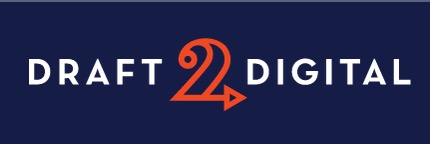

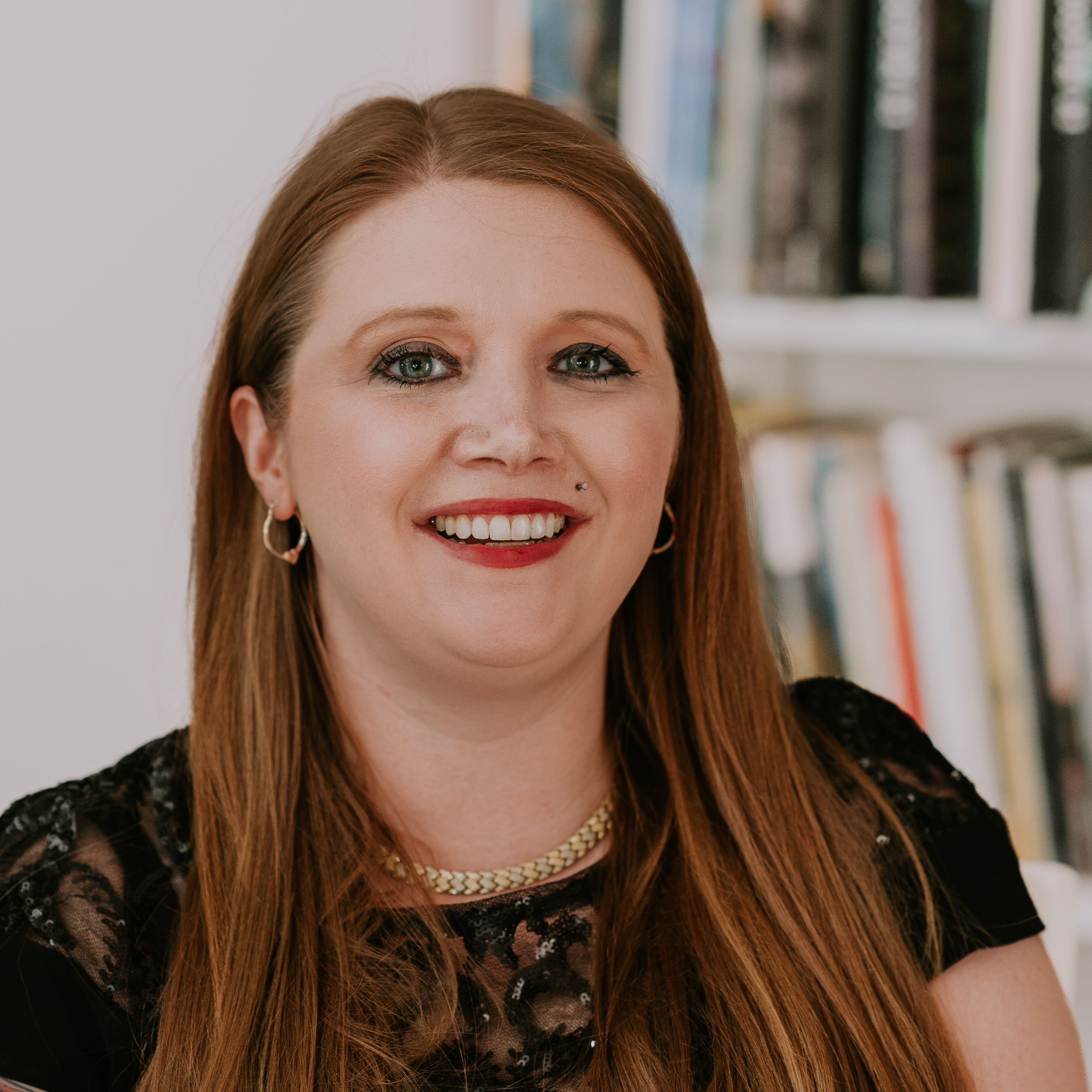

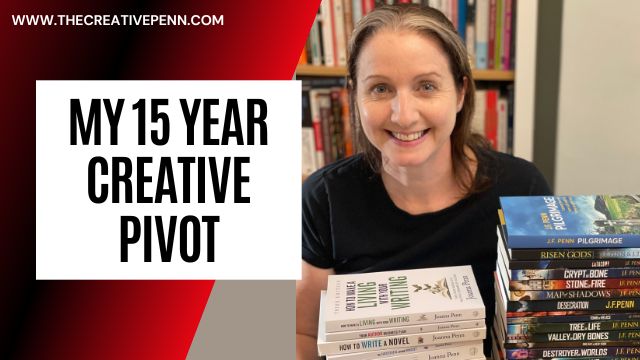
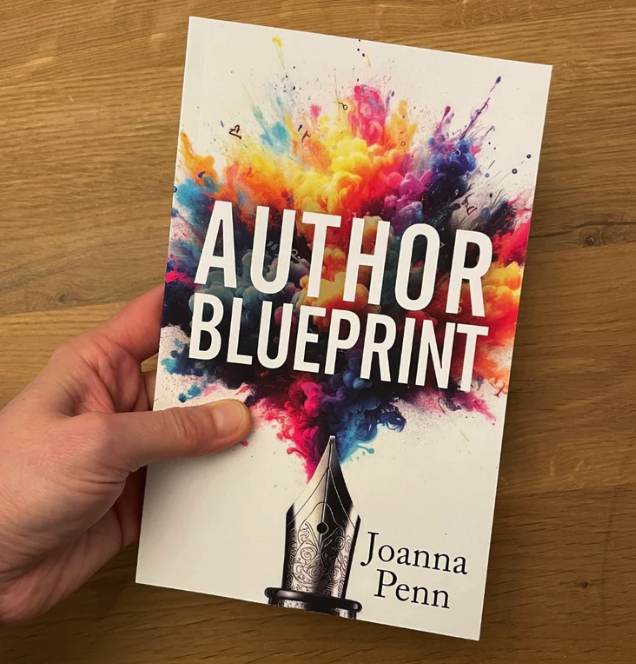
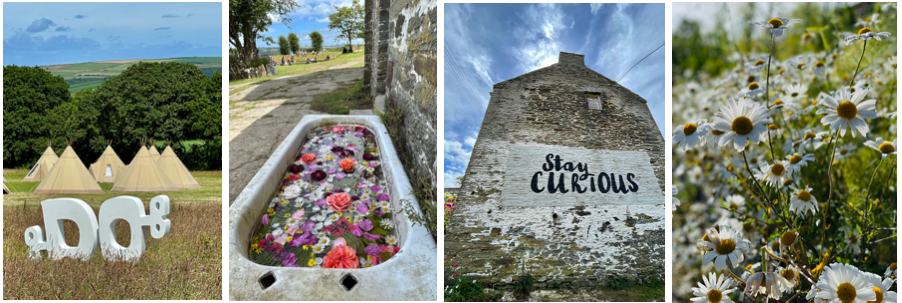
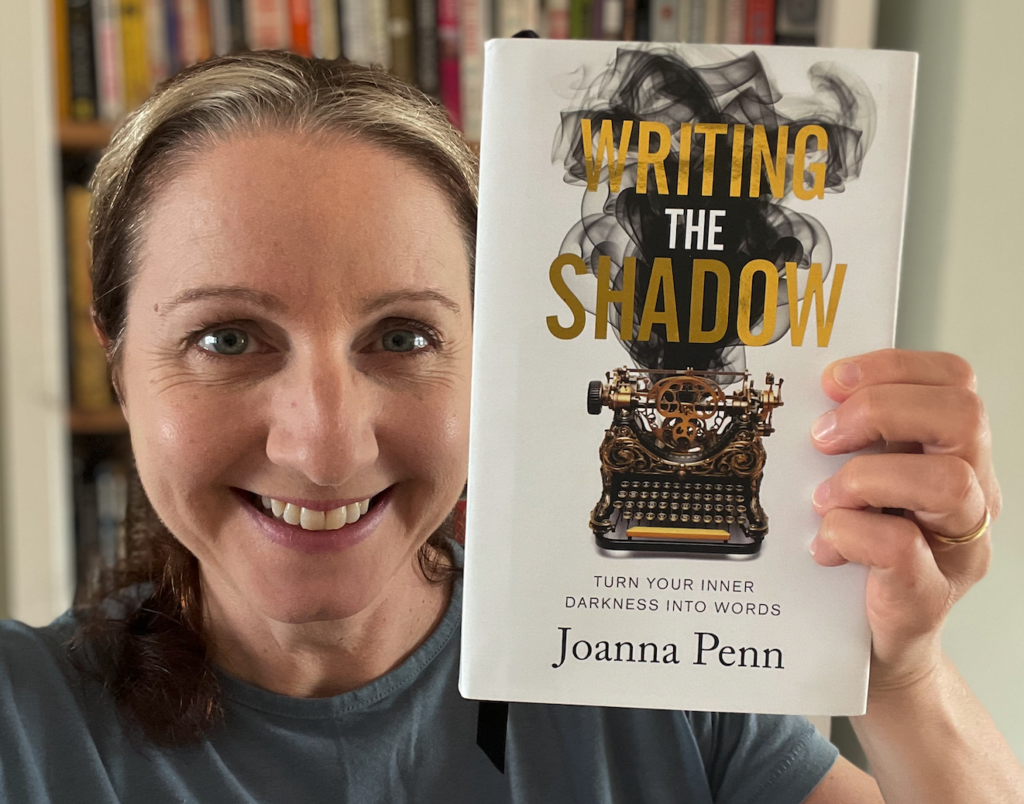
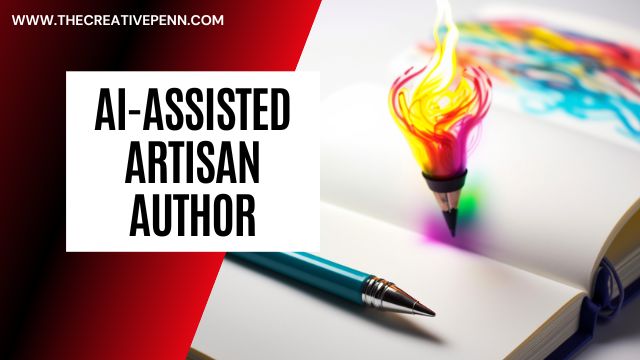

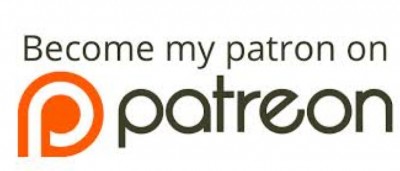
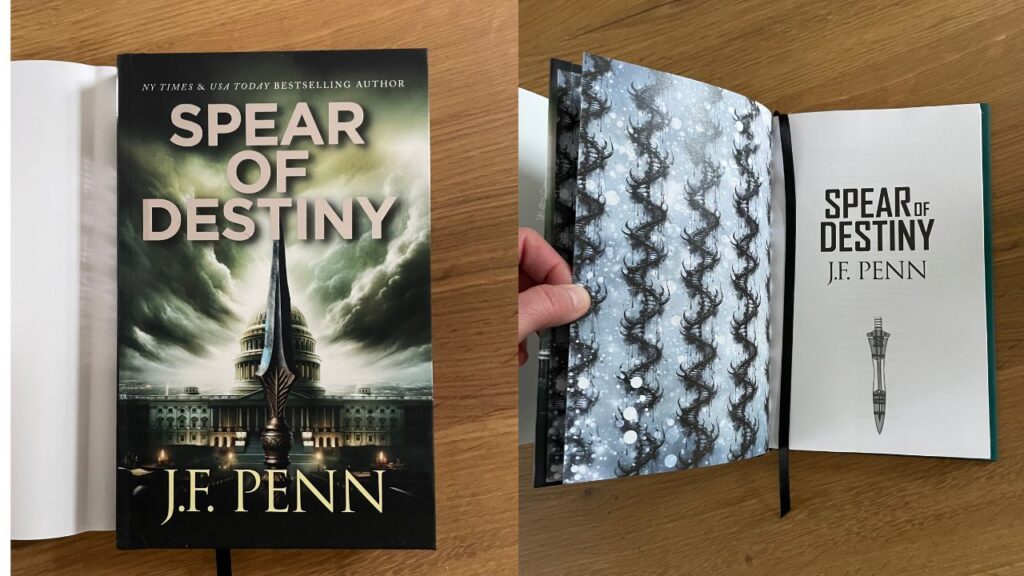
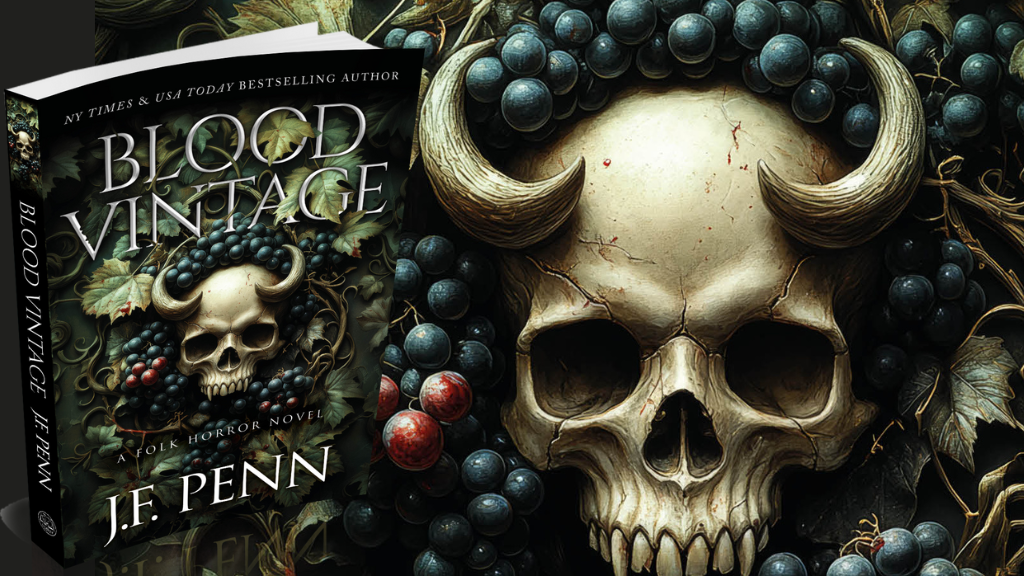
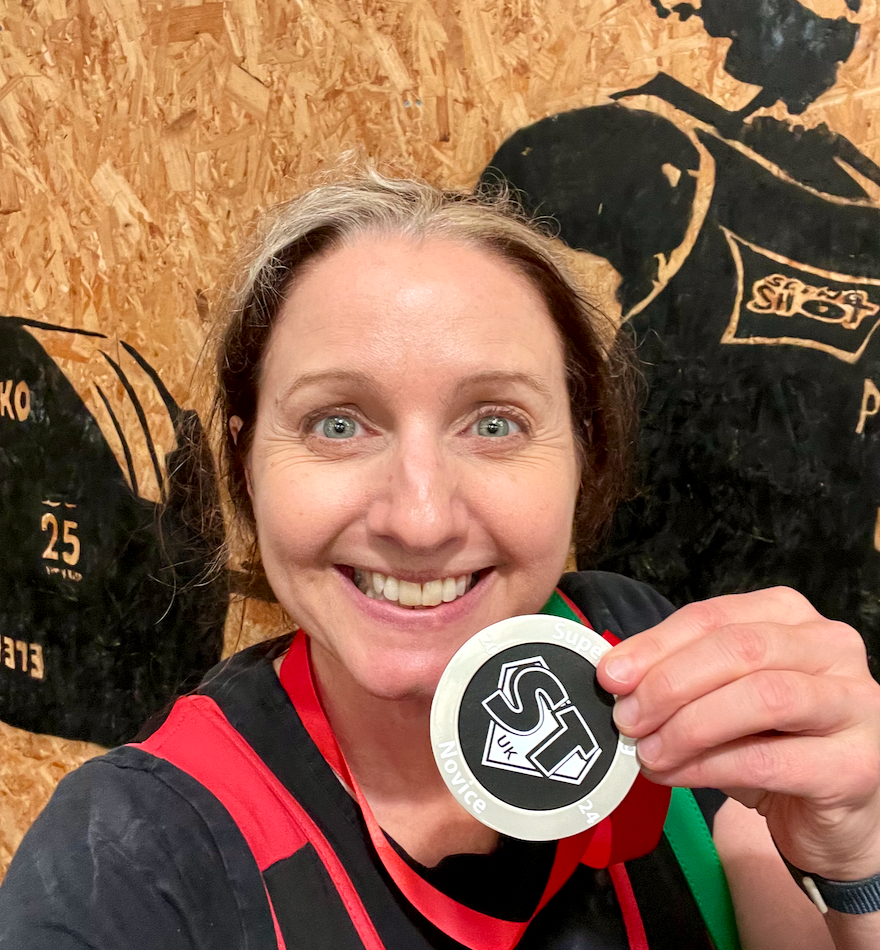
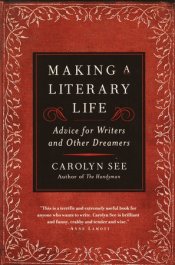
Recent Comments